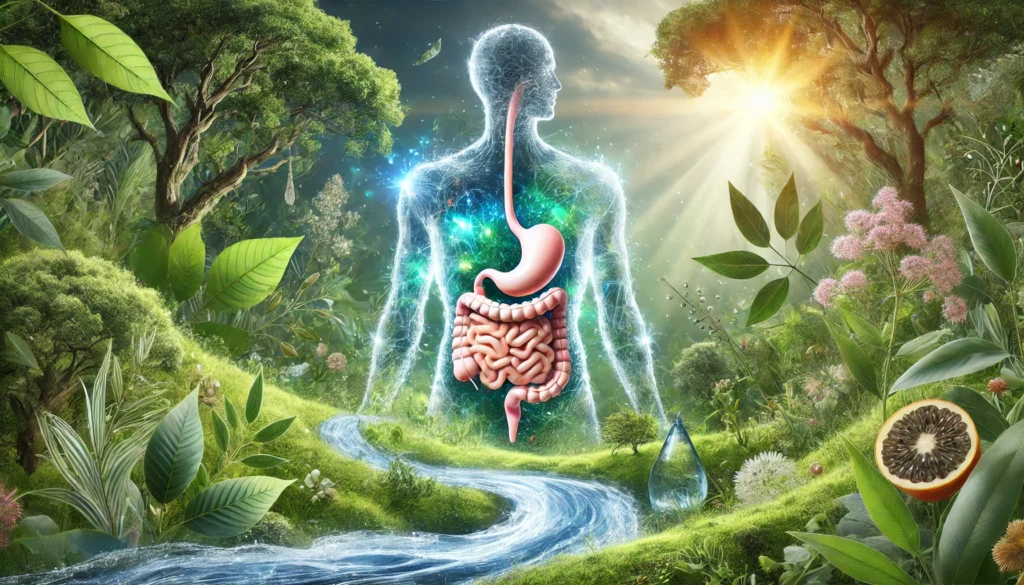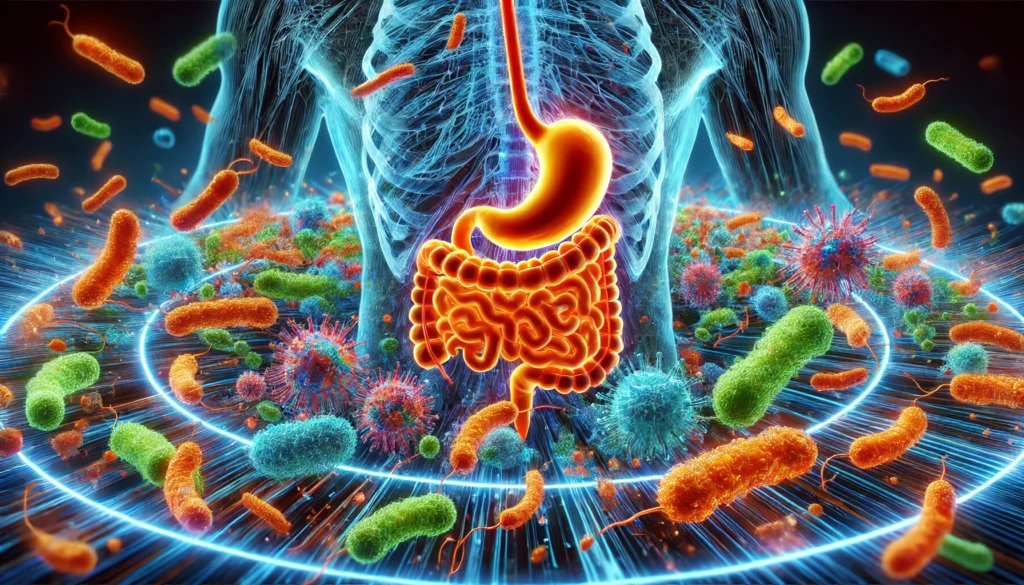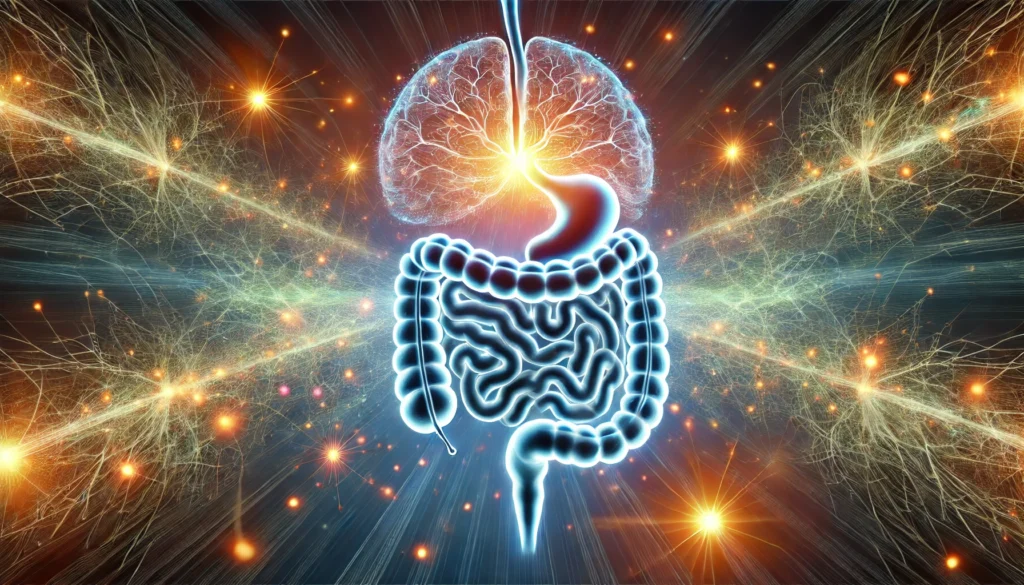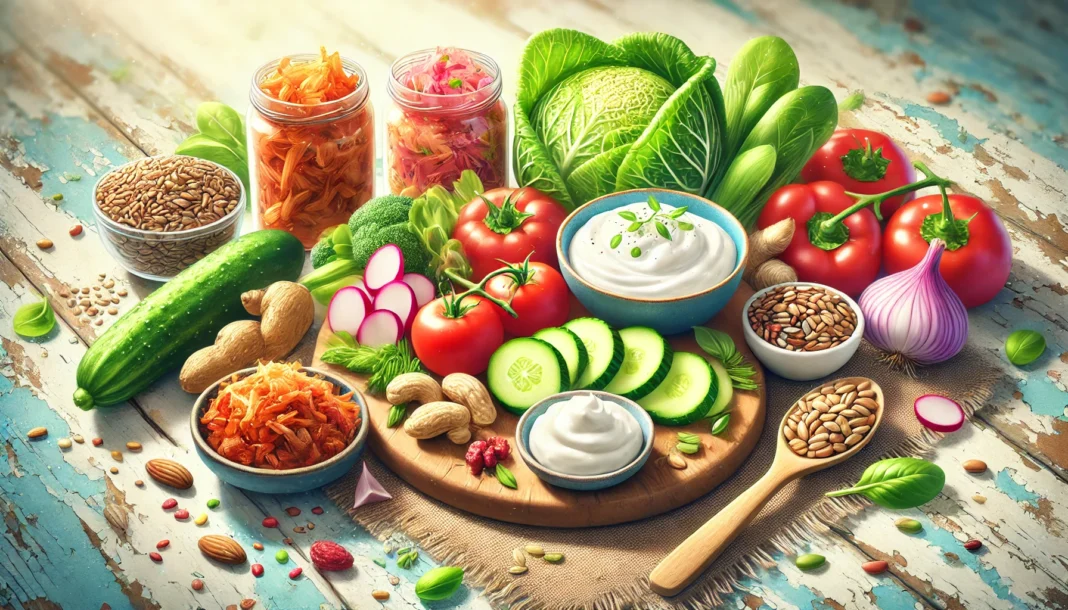Understanding Nutrient Absorption and Its Significance for Health
The process of nutrient absorption is fundamental to human health, ensuring that the body receives essential vitamins, minerals, and macronutrients required for energy production, cellular repair, and immune function. While digestion begins in the mouth and continues through the stomach, the majority of nutrient absorption occurs in the small intestine. This highly specialized organ is equipped with structures such as villi and microvilli that dramatically increase surface area, facilitating efficient uptake of nutrients. Without proper absorption, even the most nutritious diet cannot provide optimal health benefits, making the function of the small intestine critical to overall wellness.
You may also like: How to Improve Nutrient Absorption: Unlock the Benefits of Bioavailable Nutrients for Holistic Wellness
Most nutrient absorption occurs in the small intestine due to its unique anatomical and physiological features. Unlike the stomach, which primarily breaks down food into chyme through acidic and enzymatic processes, the small intestine serves as the primary site where essential nutrients are absorbed into the bloodstream. This process is facilitated by enzymes, bile acids, and carrier proteins that work together to ensure efficient assimilation of proteins, carbohydrates, fats, vitamins, and minerals. Understanding how this intricate system operates is essential for optimizing digestion and nutrient bioavailability.

The Anatomy of the Small Intestine: A Specialized Organ for Nutrient Uptake
The small intestine is divided into three distinct sections: the duodenum, jejunum, and ileum. Each segment plays a specific role in digestion and absorption, ensuring that the body maximizes nutrient extraction from food. The duodenum is responsible for continuing enzymatic digestion, breaking down macronutrients into their simplest forms. Here, bile from the liver emulsifies fats, and pancreatic enzymes further degrade proteins and carbohydrates, setting the stage for effective absorption.
In the jejunum, where most nutrient absorption occurs, nutrients such as amino acids, glucose, and fatty acids are actively transported across the intestinal lining. This process is made possible by specialized transporter proteins that facilitate the movement of nutrients into the bloodstream. The ileum, the final section of the small intestine, is where vitamin B12, bile salts, and some remaining nutrients are absorbed before waste products are passed into the large intestine. Together, these three sections create an efficient system that ensures the body receives the nutrients it requires for optimal function.
The Role of Bioavailability in Nutrient Absorption
Not all nutrients are absorbed equally, and bioavailability plays a crucial role in determining how much of a given nutrient can be utilized by the body. The bioavailability of a nutrient depends on several factors, including its chemical form, the presence of co-factors, and the efficiency of digestive enzymes. For example, iron from animal sources (heme iron) is more bioavailable than iron from plant sources (non-heme iron), which requires vitamin C to enhance absorption.
Similarly, fat-soluble vitamins such as A, D, E, and K require dietary fats for optimal absorption. Without sufficient fat intake, these essential vitamins may pass through the digestive tract without being utilized, leading to deficiencies. The majority of nutrient absorption occurs in the small intestine, making it imperative to consume a well-balanced diet that supports enzymatic activity and enhances bioavailability. Strategies such as pairing certain foods together, optimizing gut health, and choosing bioavailable supplement forms can significantly improve nutrient uptake.
Enhancing Digestion and Nutrient Absorption Through Diet
Dietary choices play a significant role in determining how efficiently nutrients are absorbed. Eating a diet rich in whole, unprocessed foods ensures that the digestive system receives essential fibers, enzymes, and prebiotics that support intestinal health. Fermented foods such as yogurt, kimchi, and sauerkraut introduce beneficial probiotics into the gut, which can enhance nutrient absorption by maintaining a balanced microbiome.
Additionally, consuming sufficient protein supports the production of digestive enzymes necessary for breaking down macronutrients. Whole grains, fruits, and vegetables provide essential fiber that promotes peristalsis, ensuring that food moves efficiently through the digestive tract. Since most nutrient absorption occurs in the small intestine, maintaining its integrity through a nutrient-rich diet is crucial for overall health.
Common Factors That Impair Nutrient Absorption
Despite consuming a nutrient-rich diet, certain conditions can impair absorption and lead to deficiencies. One of the most common factors affecting absorption efficiency is gut inflammation, which can result from conditions such as celiac disease, Crohn’s disease, or chronic stress. Inflammation damages the intestinal lining, reducing the surface area available for nutrient uptake and causing malabsorption.
Additionally, low stomach acid levels can interfere with the breakdown of food, making it difficult for nutrients such as vitamin B12, magnesium, and calcium to be absorbed effectively. Certain medications, including antacids and antibiotics, can also disrupt gut flora and enzyme production, further hindering digestion. Understanding these factors allows individuals to take proactive steps to support their digestive health and maximize nutrient bioavailability.
The Importance of Enzymes and Gut Microbiota in Absorption
Digestive enzymes and gut microbiota play a pivotal role in breaking down food and facilitating nutrient absorption. Enzymes such as amylase, protease, and lipase are essential for digesting carbohydrates, proteins, and fats, respectively. Without adequate enzyme activity, undigested food particles can pass through the digestive tract without being properly absorbed.
The gut microbiome, composed of trillions of beneficial bacteria, also influences nutrient absorption by fermenting fibers and producing short-chain fatty acids. These compounds support the integrity of the intestinal lining and enhance the absorption of minerals such as calcium and magnesium. Given that the majority of nutrient absorption occurs in the small intestine, maintaining a healthy gut environment through probiotics, prebiotics, and enzyme-rich foods is essential for optimal digestion.

Frequently Asked Questions (FAQ) on Nutrient Absorption
1. Why does the majority of nutrient absorption occur in the small intestine?
The majority of nutrient absorption occurs in the small intestine because of its specialized structure and function. Unlike other parts of the digestive system, the small intestine has an extensive surface area created by folds, villi, and microvilli, which significantly enhance its ability to absorb nutrients. Additionally, this organ is uniquely equipped with digestive enzymes and transporter proteins that facilitate the efficient uptake of carbohydrates, proteins, fats, vitamins, and minerals. While digestion begins in the stomach, the breakdown of nutrients is completed in the small intestine, where they are absorbed into the bloodstream and distributed to cells. Without the small intestine’s specialized environment, the body would struggle to derive essential nutrients from food, leading to deficiencies and poor overall health.
2. How does gut health influence nutrient absorption?
A healthy gut microbiome plays a crucial role in ensuring that most nutrient absorption occurs in the small intestine. Beneficial bacteria assist in breaking down complex carbohydrates, synthesizing essential vitamins like B12 and K, and enhancing mineral bioavailability. When gut health is compromised due to poor diet, stress, or antibiotic use, the ability of the small intestine to absorb nutrients efficiently may be impaired. Inflammation and damage to the intestinal lining can lead to malabsorption, reducing the effectiveness of digestion and increasing the risk of deficiencies. Supporting gut health through probiotic-rich foods, fiber, and stress management can optimize the body’s ability to absorb essential nutrients.
3. What factors can negatively impact nutrient absorption?
Several factors can impair the ability of the small intestine to absorb nutrients efficiently. Chronic stress, inflammation, and gastrointestinal disorders such as Crohn’s disease and celiac disease can damage the intestinal lining, reducing its absorptive capacity. Additionally, certain medications, including proton pump inhibitors and antibiotics, can disrupt the gut microbiome, affecting the digestive process. A diet high in processed foods and low in fiber can slow digestion and hinder absorption efficiency. Since the majority of nutrient absorption occurs in the small intestine, any factor that disrupts its function can lead to widespread nutritional deficiencies and poor health outcomes.
4. How does hydration affect nutrient absorption?
Adequate hydration is essential for the proper functioning of the small intestine and overall digestive health. Water helps dissolve nutrients and transport them across the intestinal lining into the bloodstream. Insufficient hydration can slow digestion and impair enzyme activity, making it more difficult for the body to extract essential vitamins and minerals. Since most nutrient absorption occurs in the small intestine, maintaining proper hydration ensures that nutrients can be efficiently absorbed and utilized. Drinking water before and after meals, rather than in large amounts during meals, helps optimize digestive efficiency without diluting stomach acid and enzymes.
5. Can food combinations impact the efficiency of nutrient absorption?
Yes, the way foods are combined can significantly influence how efficiently the body absorbs nutrients. Some nutrients require specific conditions or co-factors for optimal absorption. For example, vitamin C enhances the absorption of non-heme iron found in plant-based foods, making it beneficial to pair citrus fruits with iron-rich vegetables like spinach. Healthy fats improve the absorption of fat-soluble vitamins such as A, D, E, and K, meaning that adding olive oil or avocado to a meal can enhance their uptake. Conversely, certain compounds, such as oxalates in spinach and phytates in legumes, can inhibit mineral absorption, requiring careful meal planning for maximum nutrient intake. Understanding how to combine foods strategically can enhance the efficiency of nutrient absorption in the small intestine.
6. How does aging affect nutrient absorption?
As people age, the efficiency of nutrient absorption in the small intestine can decline due to physiological changes in digestion. Reduced production of stomach acid can impair the breakdown of proteins and the absorption of minerals such as calcium, magnesium, and iron. Additionally, the body may produce fewer digestive enzymes, making it harder to process and absorb macronutrients effectively. Aging also affects the gut microbiome, potentially leading to imbalances that disrupt digestion and nutrient uptake. Since most nutrient absorption occurs in the small intestine, older adults may benefit from enzyme supplements, increased hydration, and nutrient-dense diets to support optimal digestion.
7. Are there specific nutrients that are more difficult for the body to absorb?
Certain nutrients require special conditions for optimal absorption and may be more challenging for the body to utilize efficiently. Vitamin B12, for instance, requires intrinsic factor, a protein produced in the stomach, for proper absorption in the ileum of the small intestine. Iron absorption is influenced by dietary composition, with heme iron from animal sources being more bioavailable than non-heme iron from plants. Fat-soluble vitamins A, D, E, and K need dietary fats for absorption, meaning a low-fat diet may compromise their uptake. Calcium and magnesium absorption can be influenced by competing minerals and digestive pH levels, requiring balanced intake and, in some cases, supplementation. Understanding the unique absorption requirements of these nutrients can help individuals make dietary choices that enhance their availability.
8. What lifestyle habits can optimize nutrient absorption?
Several lifestyle habits can enhance the body’s ability to absorb essential nutrients more efficiently. Eating meals mindfully and chewing food thoroughly supports digestion by breaking down food into smaller particles for better absorption. Regular physical activity promotes healthy digestion by stimulating intestinal motility and improving circulation to digestive organs. Managing stress through meditation and deep breathing exercises can reduce the impact of cortisol on digestive function, preventing nutrient malabsorption. Since the majority of nutrient absorption occurs in the small intestine, incorporating these habits ensures that the body maximizes its intake of essential vitamins and minerals. Additionally, avoiding excessive alcohol consumption and smoking can prevent damage to the intestinal lining, supporting long-term digestive health.
9. Can digestive enzyme supplements improve nutrient absorption?
Yes, digestive enzyme supplements can enhance the absorption of nutrients, particularly for individuals with enzyme deficiencies or digestive disorders. Enzymes such as amylase, protease, and lipase help break down carbohydrates, proteins, and fats, ensuring that the small intestine can absorb these nutrients effectively. People with conditions such as pancreatic insufficiency or lactose intolerance may benefit from enzyme supplementation to improve digestion and nutrient uptake. Additionally, enzyme supplementation can support aging individuals who may naturally produce fewer digestive enzymes. Since most nutrient absorption occurs in the small intestine, ensuring that food is properly broken down before reaching this stage can significantly improve bioavailability.
10. What role does the liver play in nutrient absorption?
While the majority of nutrient absorption occurs in the small intestine, the liver plays a crucial supporting role by producing bile, which aids in fat digestion and absorption. Bile emulsifies fats, breaking them down into smaller molecules that the small intestine can absorb efficiently. The liver also processes nutrients after absorption, converting them into usable forms and detoxifying harmful substances. Additionally, the liver stores fat-soluble vitamins and minerals, ensuring a steady supply of essential nutrients for the body’s needs. A healthy liver supports efficient digestion and absorption, making liver health a key factor in overall nutrient utilization.

Conclusion: Strategies for Optimizing Nutrient Absorption
Since most nutrient absorption occurs in the small intestine, it is essential to support digestive health through mindful dietary and lifestyle choices. Consuming nutrient-dense foods, ensuring adequate enzyme activity, and maintaining a balanced gut microbiome all contribute to enhanced nutrient uptake. Understanding how dietary components interact with digestive processes allows individuals to make informed choices that maximize their nutrient intake and overall health.
By prioritizing gut health, managing inflammation, and selecting bioavailable nutrients, individuals can optimize their digestive efficiency and ensure their bodies receive the nourishment needed for optimal function. The role of the small intestine in absorption cannot be overstated, making it a focal point for those seeking to improve their digestion and overall well-being.
nutrient absorption, most nutrient absorption occurs in the, the majority of nutrient absorption occurs in the, digestion and absorption, small intestine function, gut health, bioavailable nutrients, digestive enzymes, optimize digestion, enhance nutrient absorption, improve digestion naturally, gut microbiome, intestinal health, absorption efficiency, nutrient bioavailability, how digestion works, maximize nutrient uptake, healthy digestion, digestive system support, small intestine absorption
Further Reading:
The 11 Best Ways to Improve Your Digestion Naturally
Your Digestive System: 5 Ways to Support Gut Health
Disclaimer
The information contained in this article is provided for general informational purposes only and is not intended to serve as medical, legal, or professional advice. While NewsHealthWatch strives to present accurate, up-to-date, and reliable content, no warranty or guarantee, expressed or implied, is made regarding the completeness, accuracy, or adequacy of the information provided. Readers are strongly advised to seek the guidance of a qualified healthcare provider or other relevant professionals before acting on any information contained in this article. NewsHealthWatch, its authors, editors, and contributors expressly disclaim any liability for any damages, losses, or consequences arising directly or indirectly from the use, interpretation, or reliance on any information presented herein. The views and opinions

